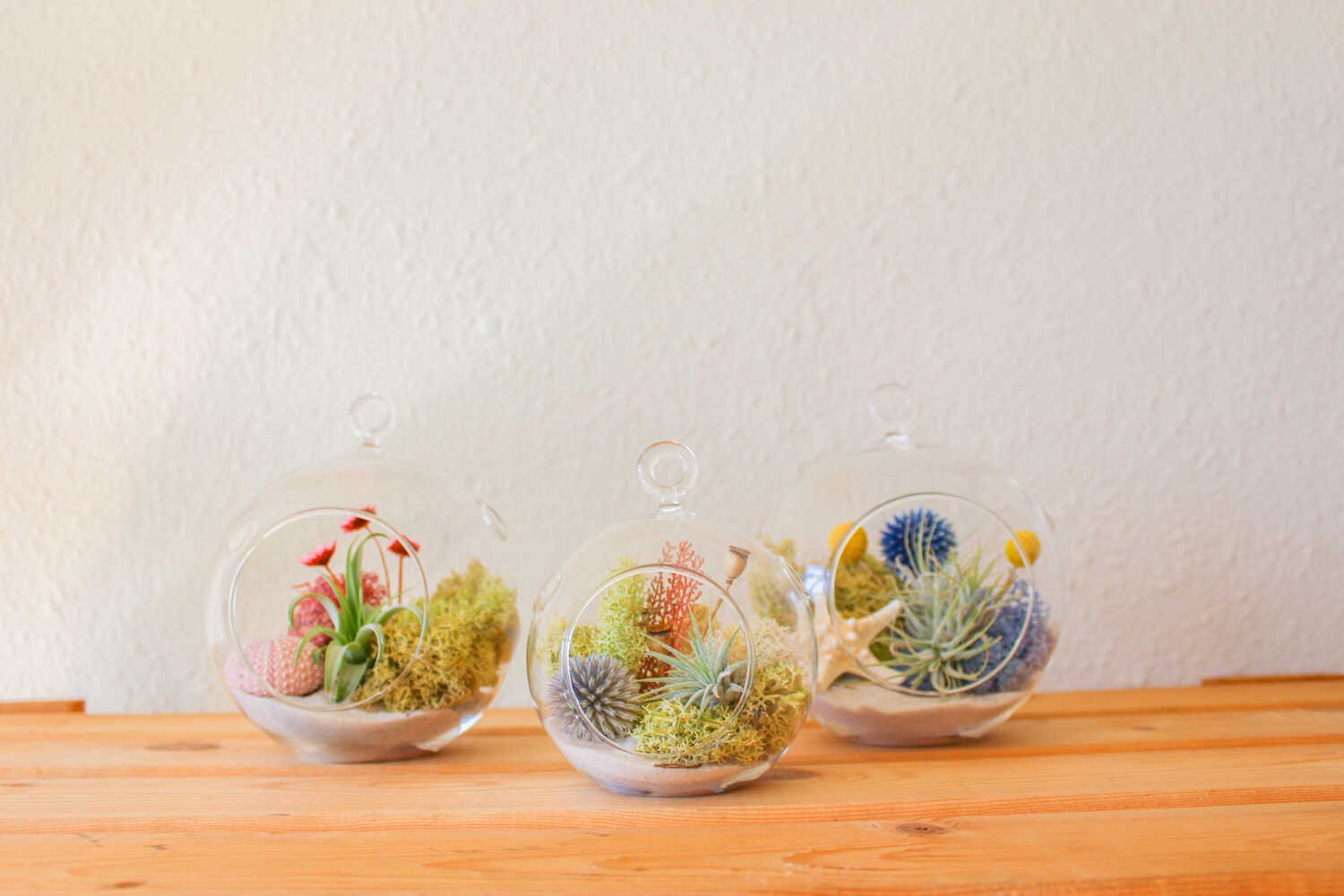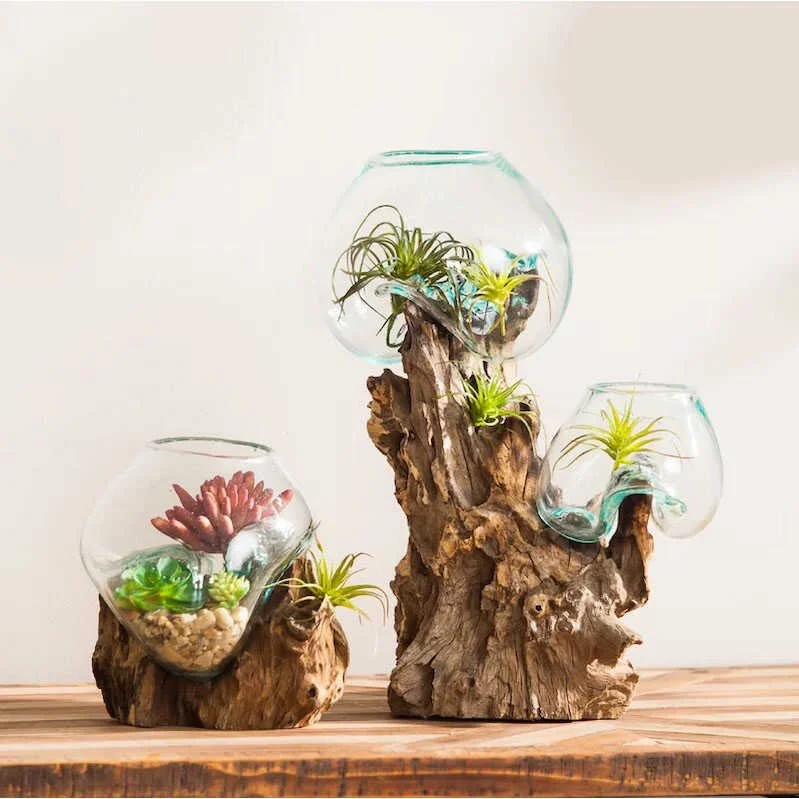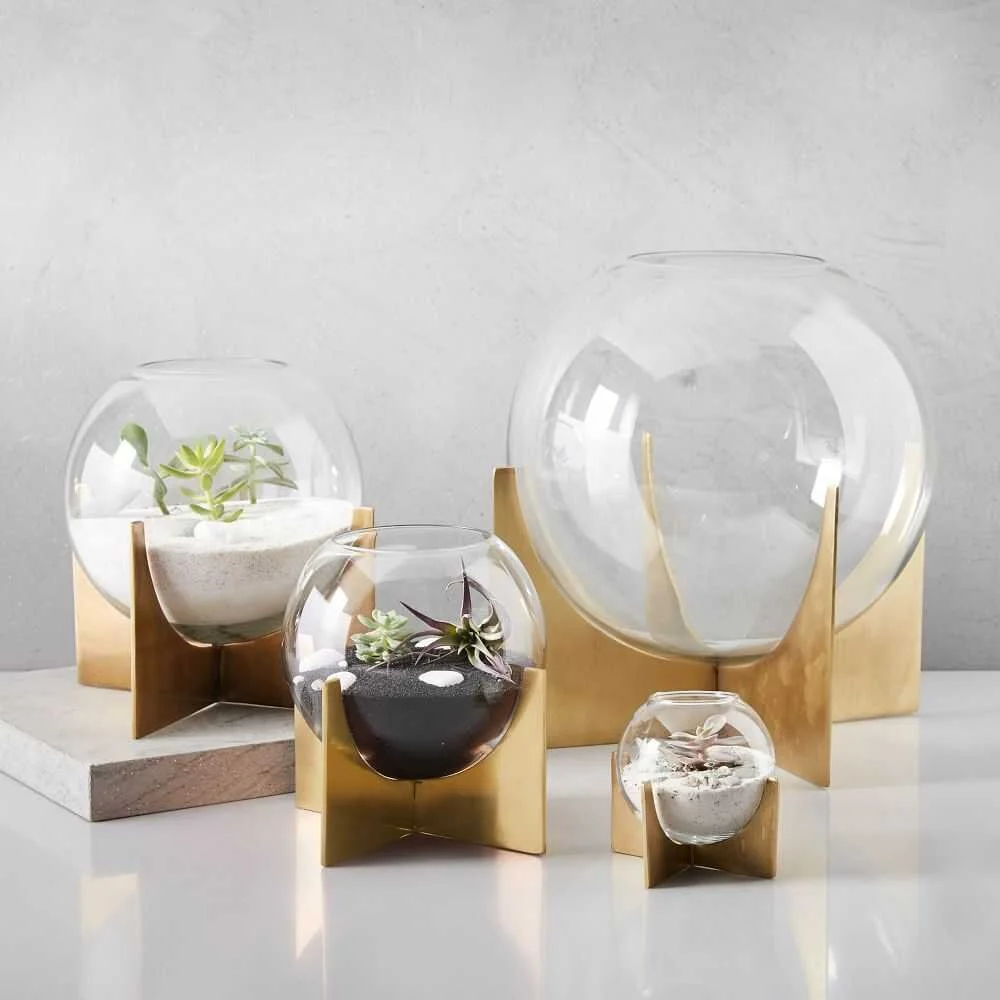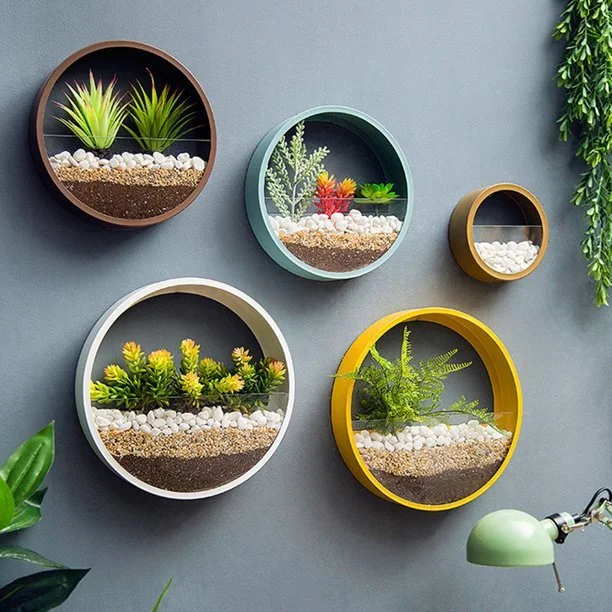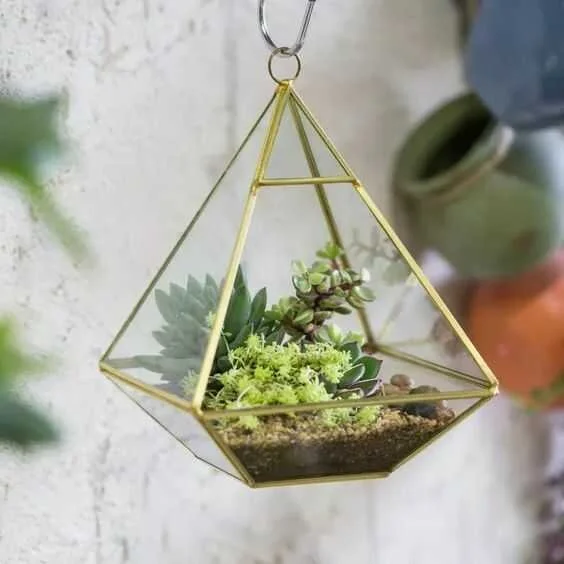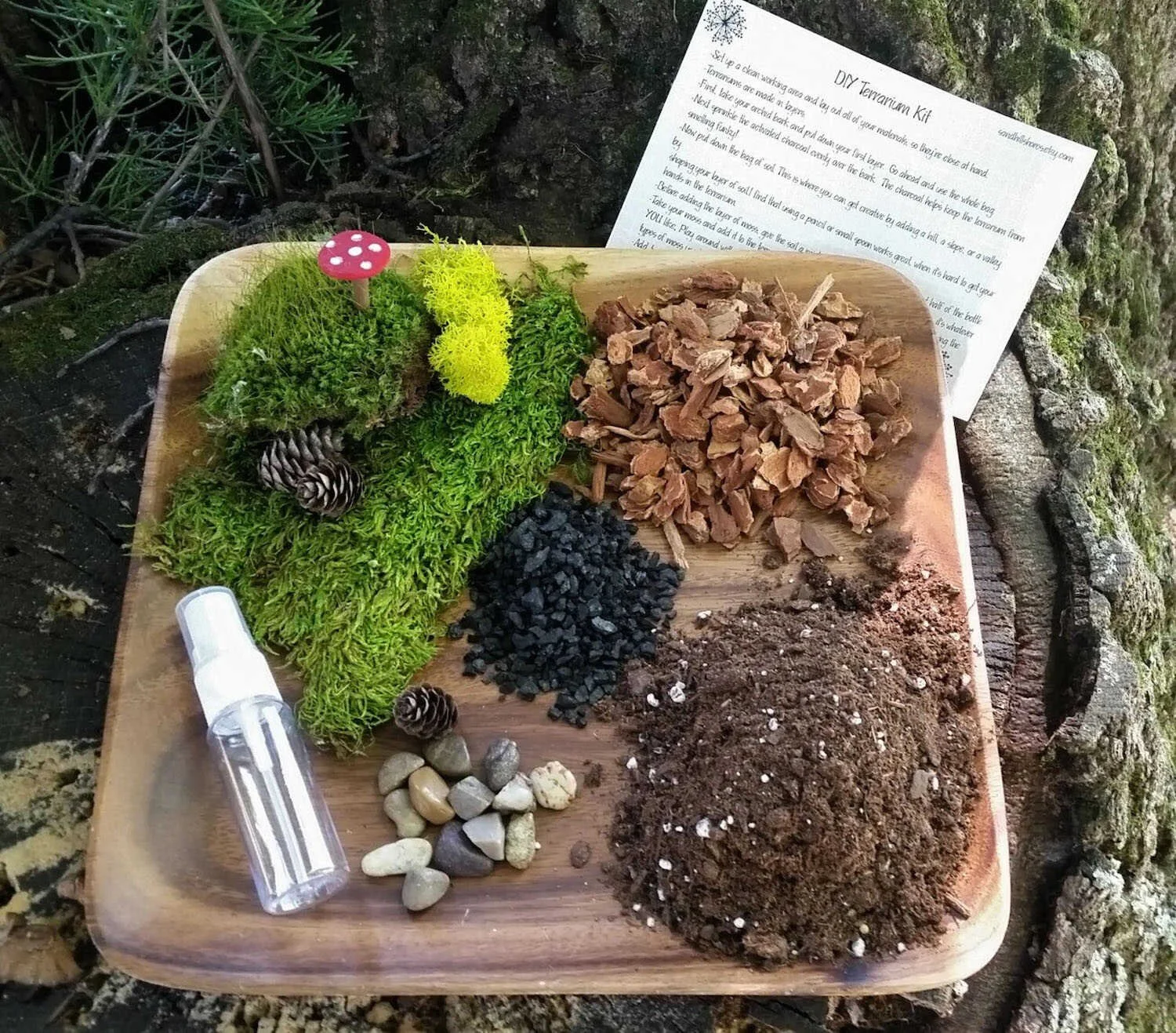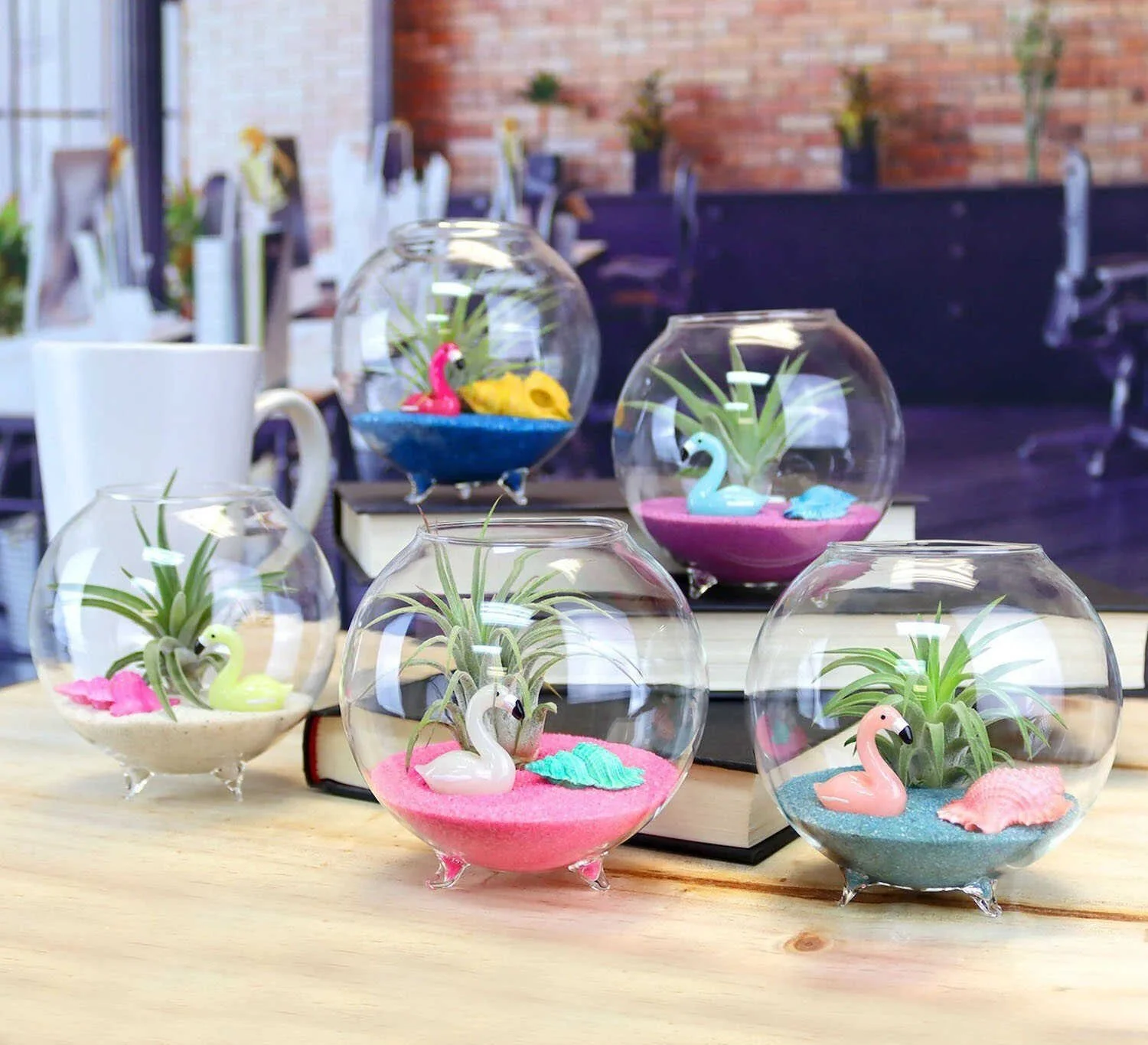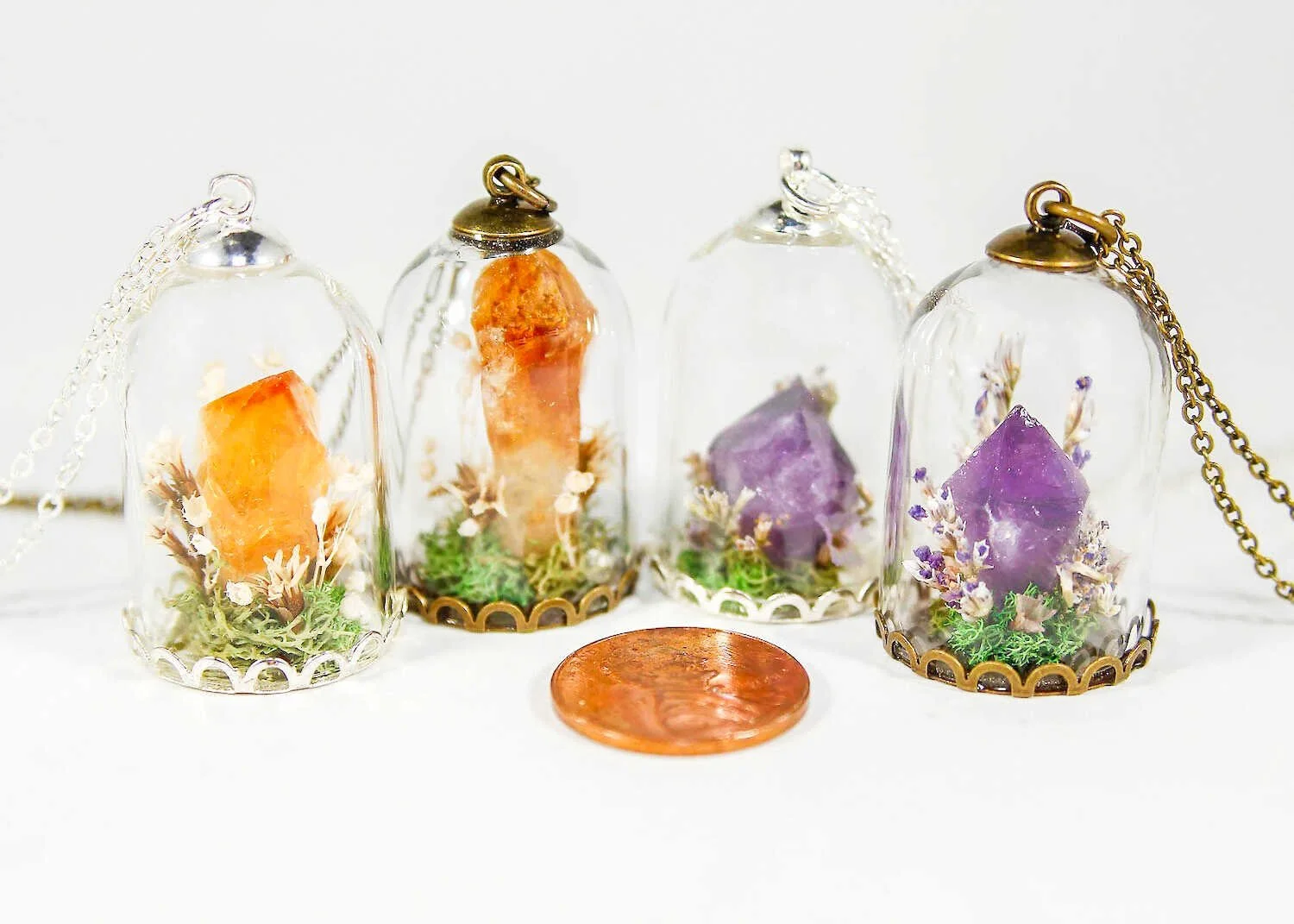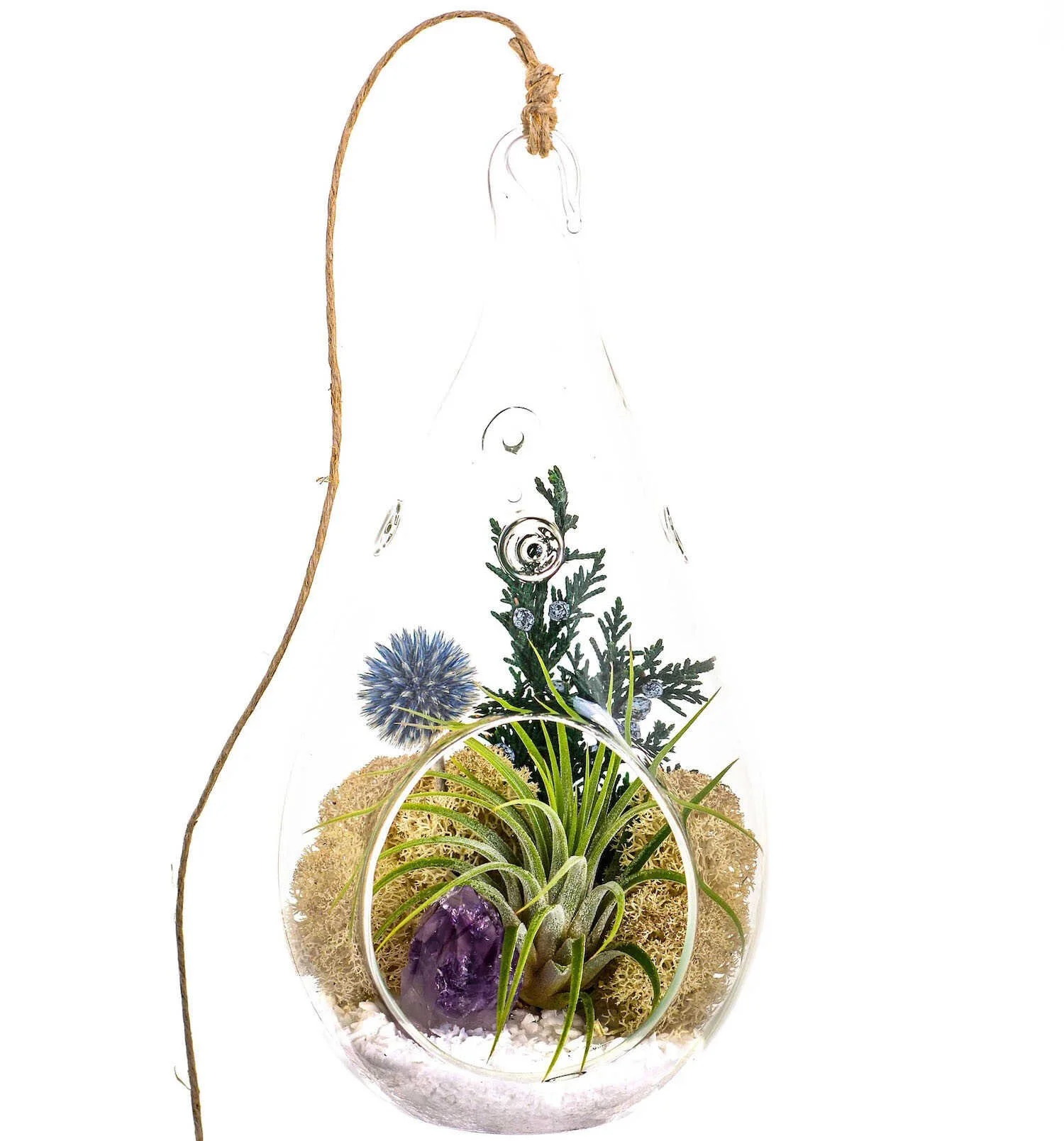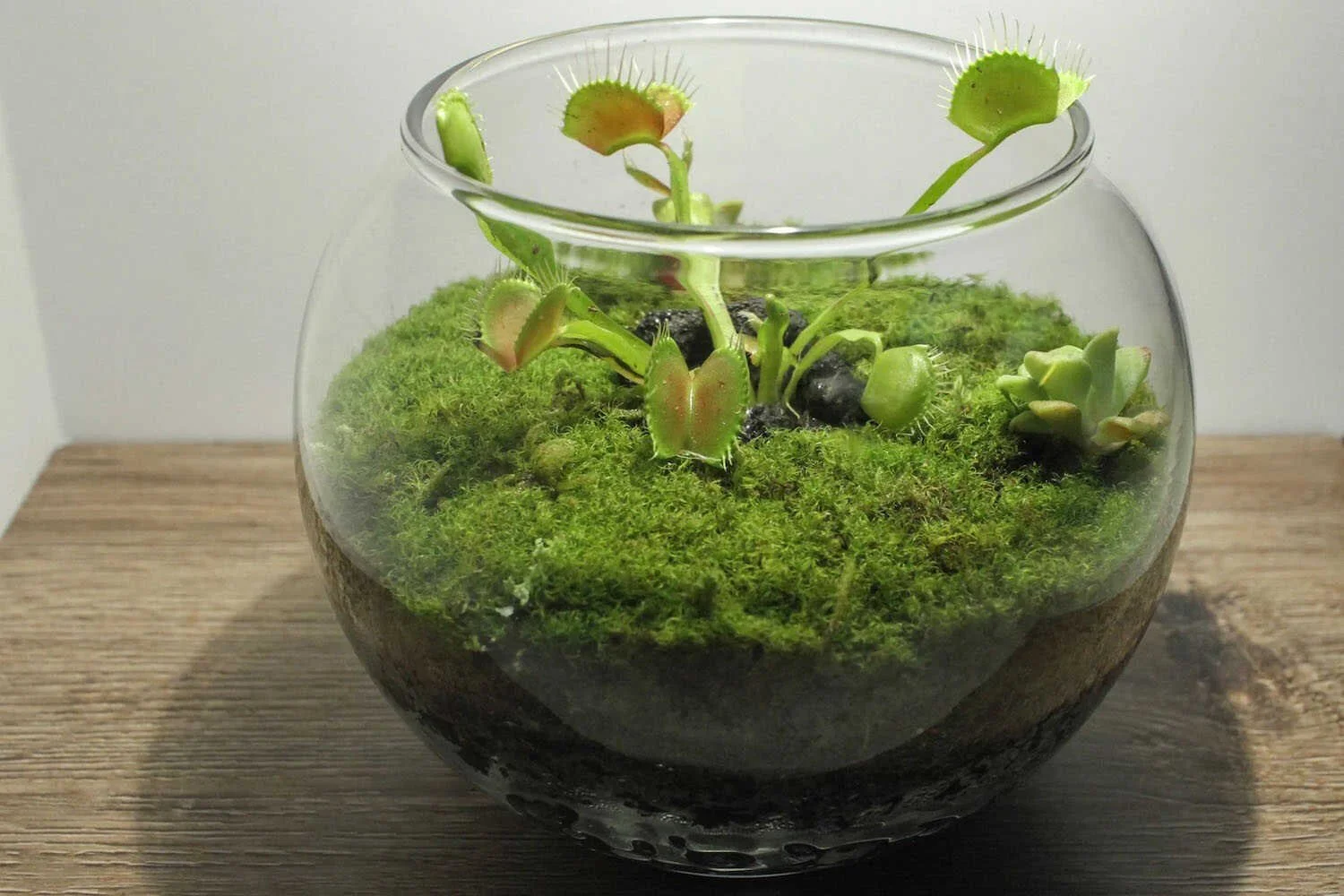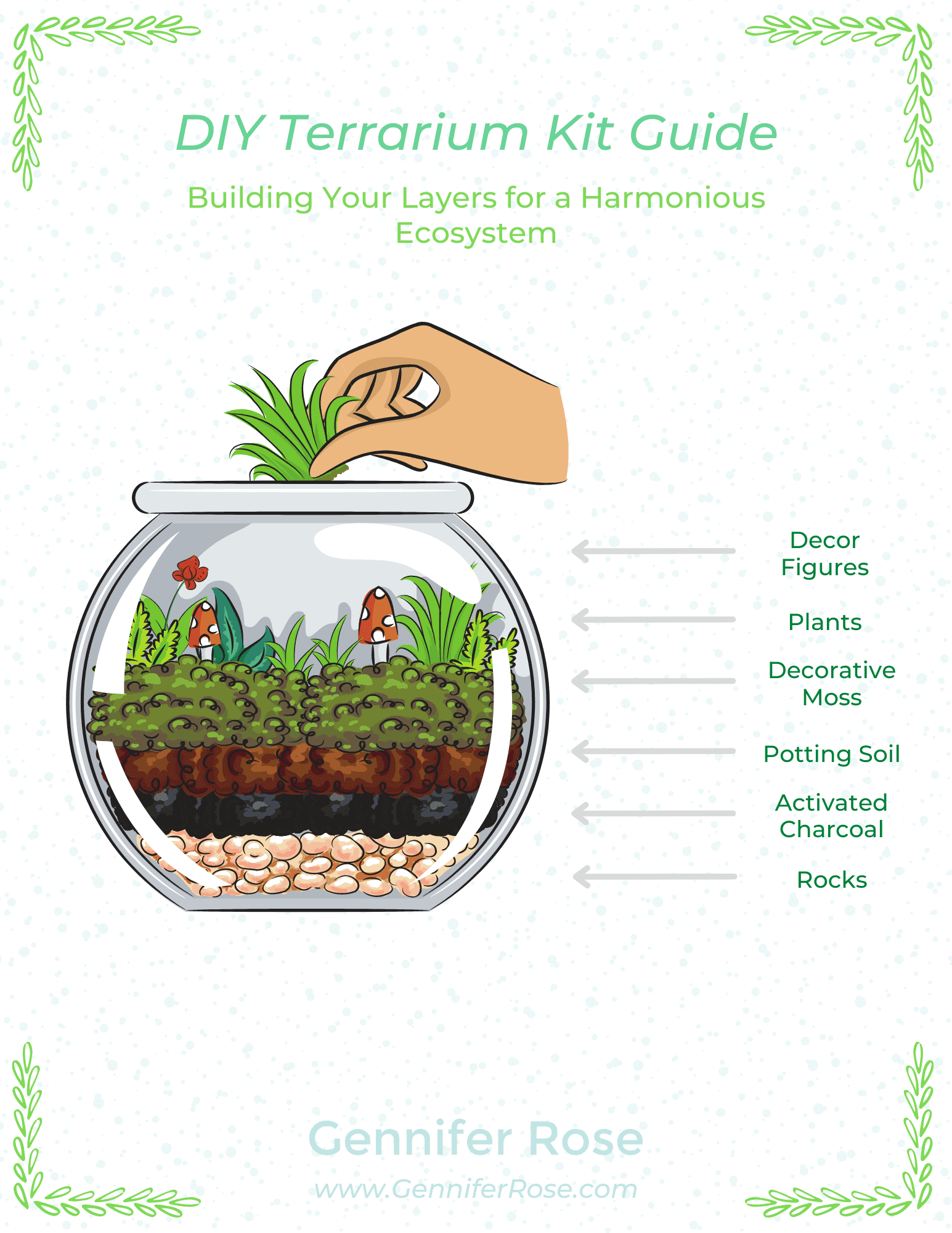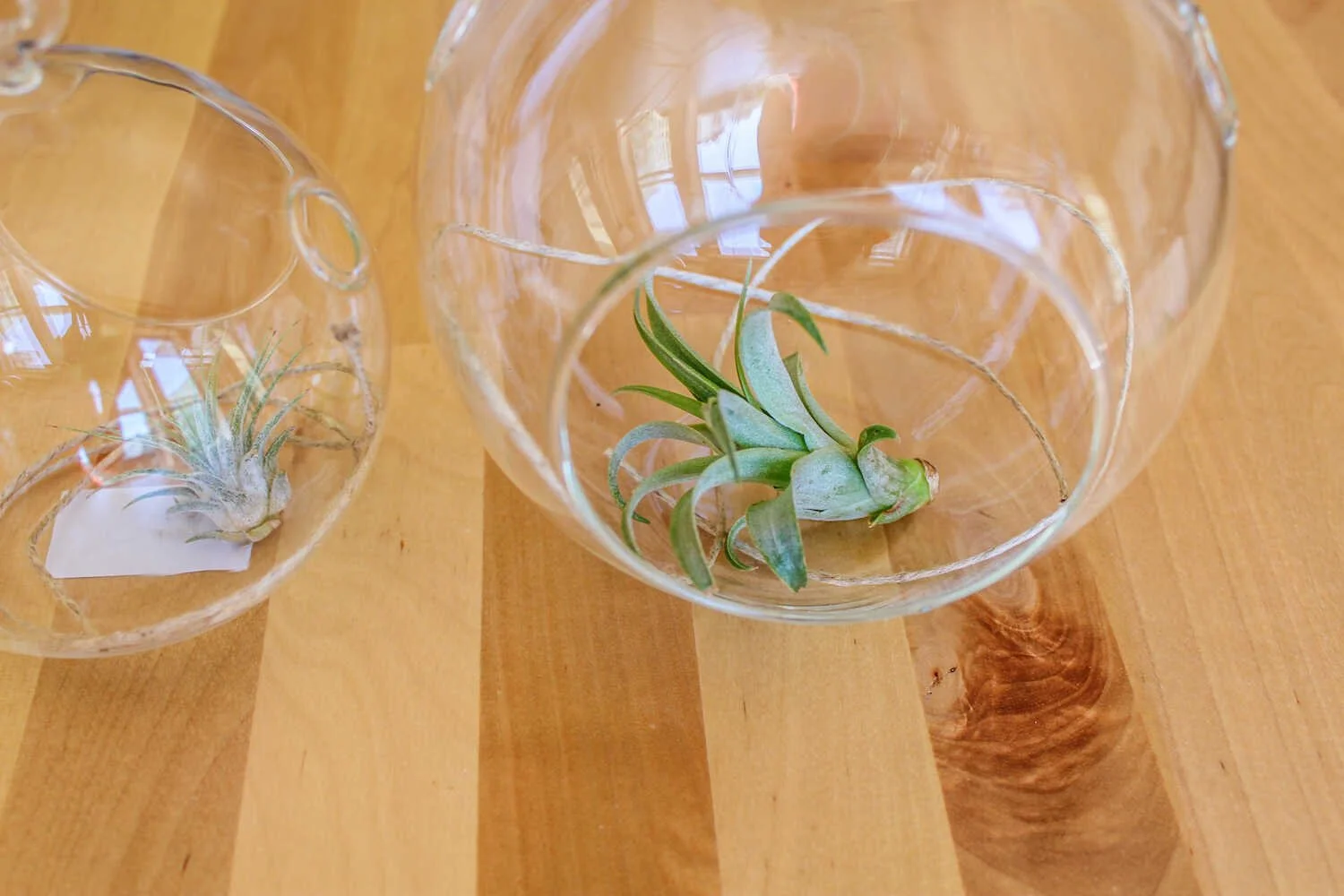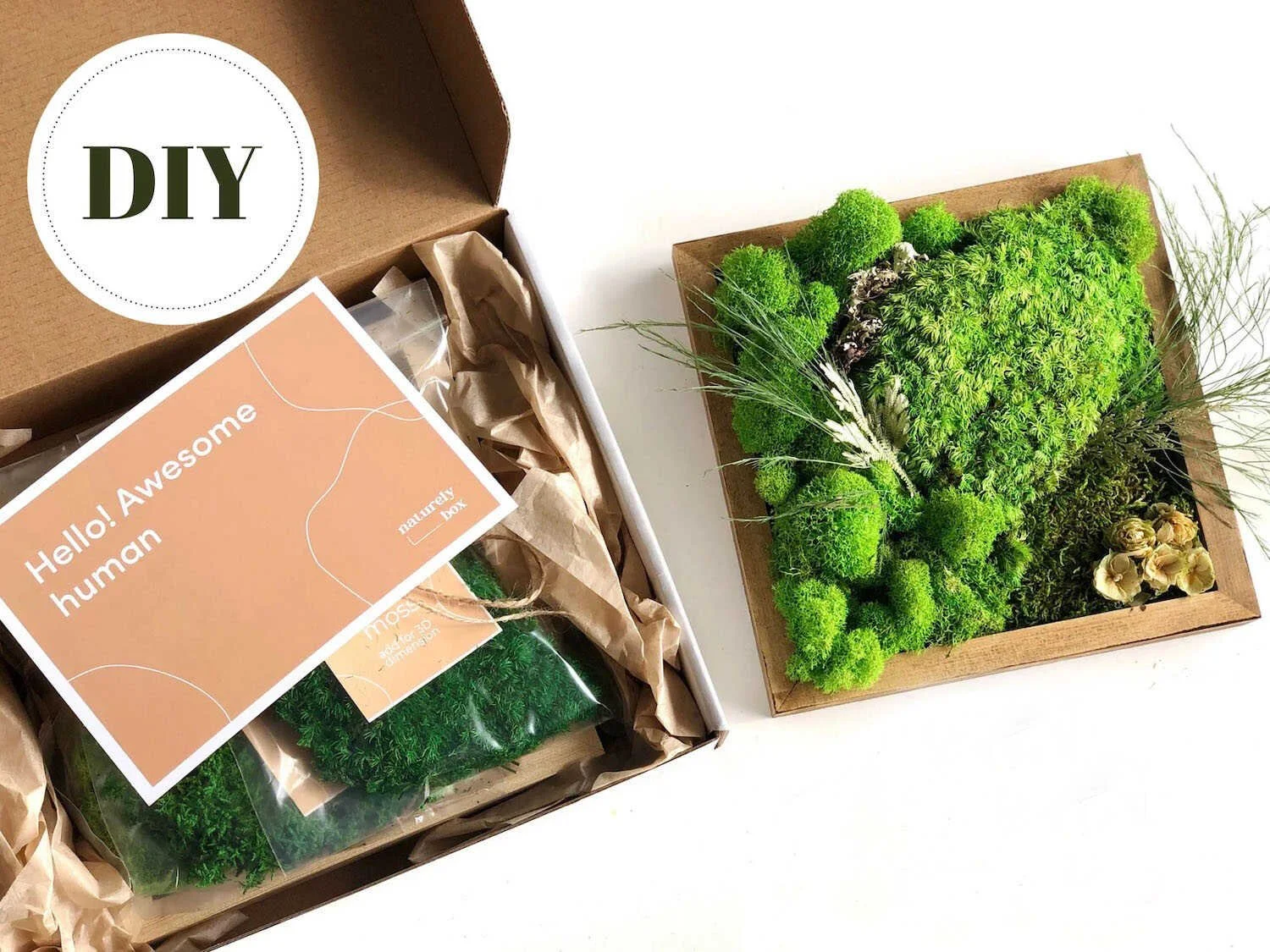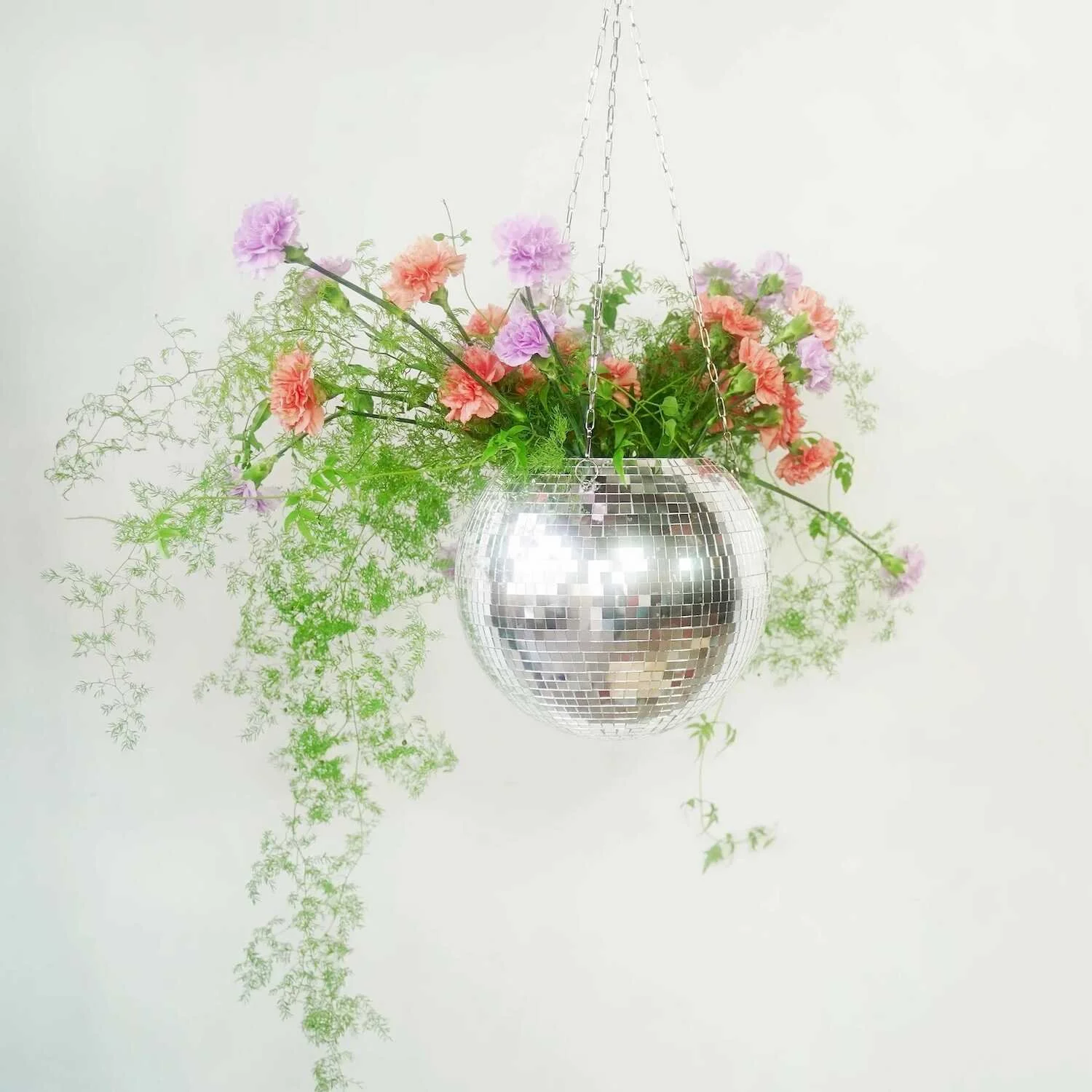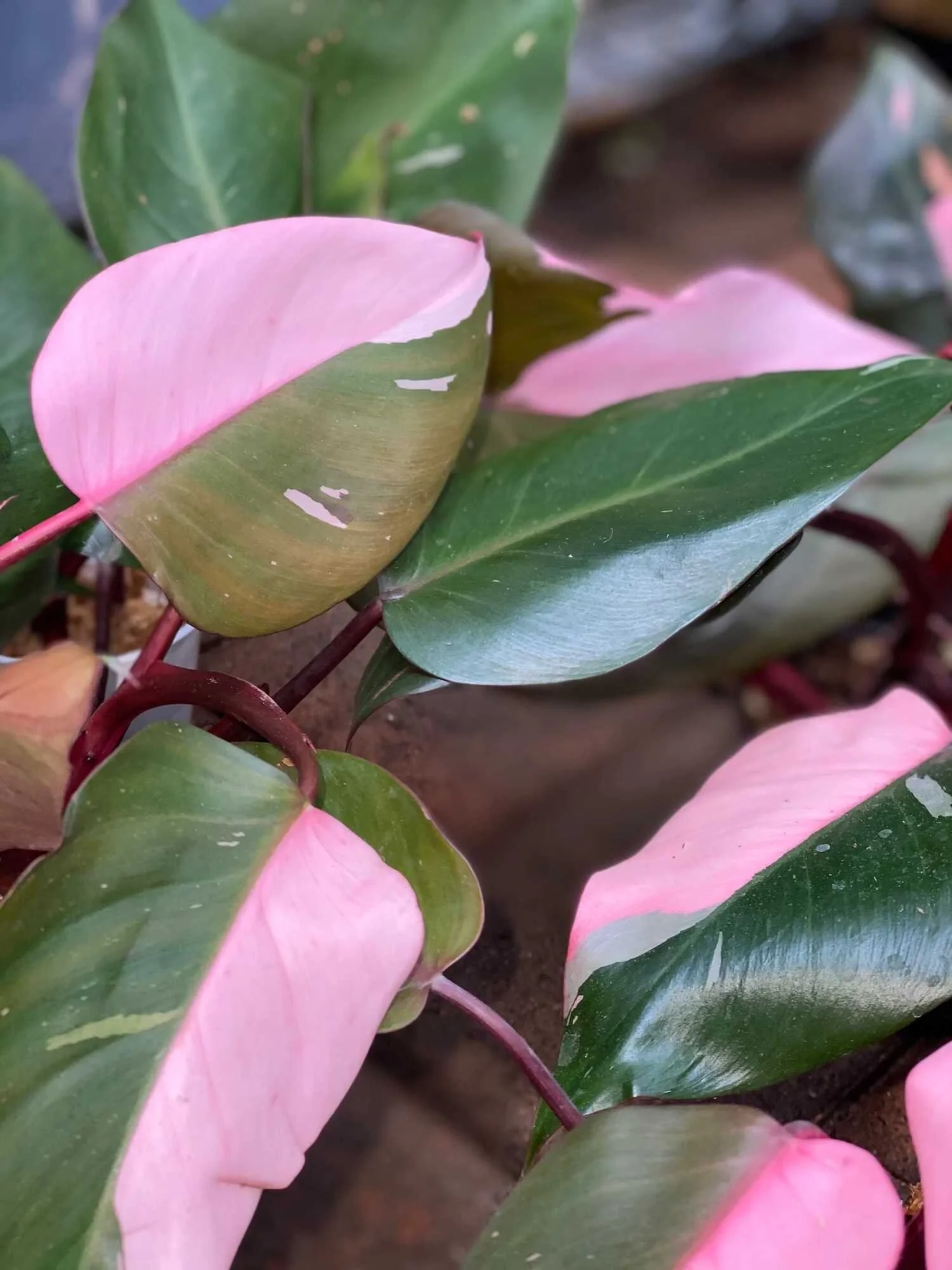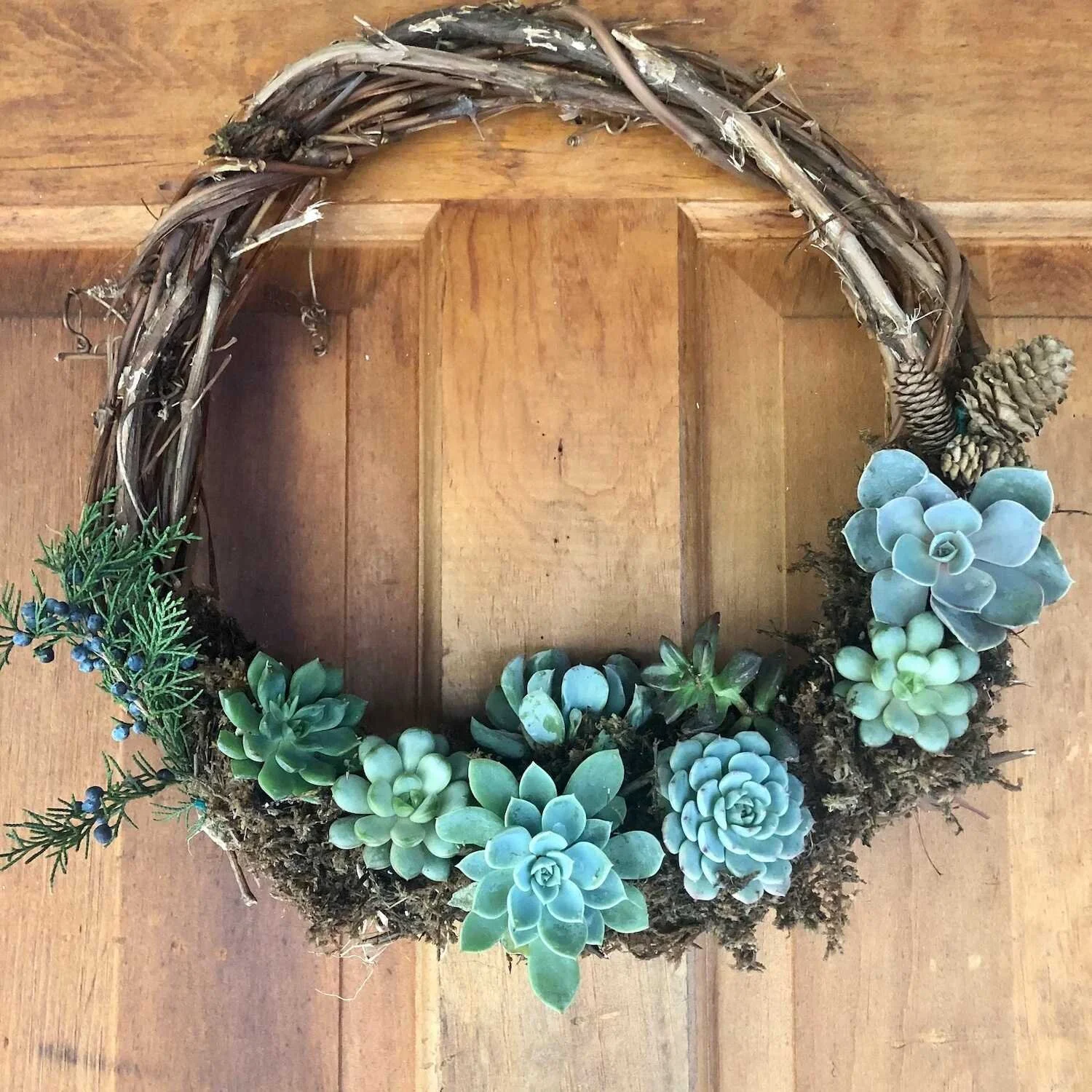DIY Terrarium Kits - Shopping and Gift Guide
In the past 10 years terrariums have skyrocketed in popularity, especially for urban dwellers who inhabit small spaces. These tiny gardens can do wonders brightening up a drab space by providing greenery and bringing in a small slice of the outdoors. These terrariums also tend to have a soothing and therapeutic effect, giving a space a sense of calm and harmony. Plant therapy is a real thing!
Having a terrarium is a step beyond a houseplant because they allow for so much creativity and variety. The options of design features are endless with terrariums. You can choose from all kinds of vessel shapes, plants, mosses, sand colors, figurines, themes, etc. Tailoring and customizing a terrarium to your own personal decor taste is very easy.
What exactly is a terrarium?
Similar to an aquarium or a vivarium, a terrarium is a tiny plant ecosystem that lives inside a small container (usually made of glass or wood). Terrariums tend to give the vibe of a tiny world living inside a bubble.
Terrariums are a unique blend of science, entertainment and home decor. When you’re in the process of building your terrarium, you have to think about the vital necessities of the living organisms inside your planter, ie. water, nutrients in the soil and oxygen. Many novice fans of botany enjoy using kits to build terrariums for fun (hence the entertainment). And finally, there’s a growing trend of incorporating “living decor” into our homes with terrariums, houseplants and vertical gardens.
Terrariums Make for Excellent Gifts
Terrariums are popular gifts for all kinds of occasions. Ranging from housewarming parties, birthdays to corporate gifts, a terrarium is sure to warm the heart of its recipient. My neighbor just recently gave me a succulent terrarium as a thank you gift for helping out with her dog and it had the cutest little succulents!
Terrariums are especially helpful when you’re gifting for a person which whom you’re not super familiar. Or if you have to mass give out presents to a group of people. It’s safe to assume that the majority of people enjoy a fresh little desk companion in their office.
Now for the question of DIY terrarium kits, do you gift the kit itself or do you use the kit to make a custom terrarium gift? The answer to this really depends on the personality of the receiver of the gift. Because I am the type of person who enjoys creative crafting projects, I would love to be gifted a complete DIY terrarium kit so I can make my own terrarium. Even better if there’s two kits so myself and a friend could spend fun times making them together!
Are Terrariums Romantic Gifts?
I’m sure there’s many ladies and gentlemen wondering if they should buy their partner a terrarium instead of the traditional bouquet of flowers. In my personal opinion, the answer is yes! Think about it, cut flowers only last for a short period of time while a terrarium will be a lovely reminder for years to come.
If you want to amp up the romance factor in your terrarium, you can use cute little figurines or pink plants such as the pink polka-dot plant, dusty rose Spanish moss or pink reindeer moss. The more personalized for them the better.
Do Terrarium Kits Make Good Gifts for Kids?
Yes, terrariums make great gifts for children of ages 5 and over. In fact I would say that terrariums are some of the most fun and hands on educational projects for children to learn about the environment and ecosystems. To make a terrarium more colorful and appealing to a younger audience, you can incorporate colorful sand, child-friendly figurines such as unicorns or dinosaurs, rainbow stones or even a light-up terrarium that serves as a night light.
Top 10 Online Shops for DIY Terrarium Kits & Supplies
Below I’ve listed my top favorite places to shop online for all things terrarium related. These stores have a huge selection of planters, complete DIY terrarium kits with instructions included, succulent gardens, vertical gardens, living moss art and more. I also included a few budget-friendly low price options for those looking to save on their first terrarium.
Wayfair has hundreds of unique terrarium styles. You can also shop all kinds of complimentary home decor items on the same website.
For those looking who prefer ultra modern aesthetics, West Elm makes terrariums with sleek details such as antique brass base for glass spheres.
Bargain hunters can find some cool terrariums on Walmart’s website for discounted prices. These wall mounted planters save space and are very visually appealing.
NCYP is an Etsy botanical shop with other 25,000 sales. They sell gorgeous geometric glass terrariums such as this hanging pyramid.
After you’ve found the perfect terrarium planter, you’ll need to shop for all the supplies to build the perfect ecosystem inside. Shop my Etsy collection for measured and pre-packaged kits.
Add a tropical splash to your terrarium with colorful sand and whimsical flamingos. Accent with a bright seashell and you’ve got living decor that can cheer up any space.
These flamingo terrariums are creations made by pro Etsy seller MyCraftyResource.
First came the living decor and now comes the living jewelry trend. With perfect timing of the crystal movement, these micro terrariums with crystals can channel positive energy and harmony for those adorning these pendants.
Bliss Gardens has sold over 30,000 terrariums on Etsy! I have purchased 3 terrariums from them myself and I’ve written a detailed review with photos below.
Another green trend is mounting vertical wall gardens as living art in your home. This is an excellent space saver if you have limited counter space or prefer to decrease clutter in your home.
Vertical wall garden are often made of wood frames filled with air plants, reindeer moss and lichen. This piece of living art is for sale at Emma Claire’s Botanical Shop.
Add a fun twist to your terrarium with fun carnivorous plants. These plants actually do eat bugs! I have several Venus fly trap plants and when you lightly stimulate their finger-like fibers they will think there’s an insect and they will actually close up in front of your eyes!
8 Layers Used to Build a Terrarium
The base of terrariums are built with layers to create an ideal growing environment for your plants. Most people generally agree that having five layers is necessary and then I’ve added a few optional layers. You will see several variations of these layers floating out in the internet space. I think there’s more than one way to “correctly” build a terrarium, but you should always have some sort of drainage system to prevent mold and bacteria growing in soggy soil.
#1 - The Drainage Layer
The first layer to go into your jar is the drainage layer. You need this layer to catch excess moisture draining from the potting soil to fend off stagnation, harmful bacteria and prevent odor.
Supply Shopping List for Drainage Layer:
Leca Balls (short for lightweight expanded clay aggregate)
#2 - Barrier Moss Layer (Optional)
The Barrier Layer is not always included in the essential terrarium layers because many consider it to be optional. The barrier layer’s purpose it to create an extra reservoir on top of the bottom rock layer to keep water from overflowing. It also serves as an extra barrier cushion to keep your rock layer from filling up and getting clogged with loose soil debris that drain down.
A popular choice for this layer is Sphagnum Moss because of its antiseptic properties. The Sphagnum Moss works double duty as a barrier and preventing harmful bacteria and mold from growing.
I will be the first to admit that Sphagnum Moss is not the prettiest natural material and if you’re going for a certain aesthetic you might want to just swap it for cute and fluffy green Reindeer Moss for your barrier layer. Because the Sphagnum Moss is very thin and stringy, you’ll need a thick layer to be effect and do the trick.
Supply Shopping List for Barrier Layer:
#3 - The Activated Charcoal Layer
The activated charcoal layer serves as a purifier for the water. This ideal water filter removes toxins from the water without stripping it of the desired salts and minerals. Over time tiny plant materials will decay which creates a build-up of foul smelling bacteria. Activated charcoal is your best bet to combat this.
Supply Shopping List for Charcoal Layer:
Activated Charcoal Chips or Pellets - Opt for chunky chips and avoid the powder form.
Activated Charcoal is also known by the name Activated Carbon
Horticultural Charcoal can also be used.
#4 - The Orchid Bark Layer (Optional)
Another popular yet optional layer is orchid bark. This chunky bark works great for aerating soil, adding additional drainage and avoiding the soil getting too compact. I have seen some people using orchid bark as a substitute for rocks in the drainage layer. Some people mix orchid bark directly into the substrate (another word for soil).
Supply Shopping List for Orchid Bark Layer:
#5 - The Substrate Soil Layer
The type of soil that you select will depend on the types of plants you want in your terrarium. For example there’s tropical plants, desert plants such as succulents and cacti, etc. You just need to make sure that the group of plants you put together in a terrarium all require the same amount of watering.
In regards to how thick your soil layer should be, it should be deep enough to comfortably cover the biggest root and still have some room to grow.
Important note - If you’re only using air plants in your terrarium, you don’t need any soil layer.
Supply Shopping List for Soil Layer:
For a succulent garden and/or cactus garden you want porous sandy potting soil that is fast draining.
For tropical plants you can buy special formulated potting soil mix.
#6 - Plant Layer
Using your fingers or a tiny gardening trowel, make small divots in the soil where you’ll be inserting your plant’s roots. You want the soil to completely cover the base of the plant, leaving no exposed roots.
Below I have listed some of the most popular plants for terrariums. Remember to do your research ahead of time to make sure the ones you select require the same soil and watering needs.
Supply Shopping List for Terrarium Plants:
#7 - Decorative Moss Layer
Not long ago the humble moss was an overlooked plant. In recent times it has become one the stars of the show and is considered a botanical decorative element with interesting textures and volume.
In Layer #2 the functional use of moss in a terrarium is to help with drainage and help prevent harmful bacteria and mold. The top decorative moss layer is for aesthetics and to give the effect of a lush botanical garden. Below I have some of the prettiest mosses listed for terrarium top layers.
Supply Shopping List for Decorative Mosses:
#8 - Adding the Final Decor & Accents to Your Terrarium
And now comes the creative and whimsical part of DIY building your own terrarium. You can choose to skip this and let your plants and moss be the focal point of your terrarium, or you can incorporate accents such as figurines, crystals, etc. Natural elements such as pine cones, sea shells, pretty rocks or agates blend in seamlessly for a natural habitat vibe. Keep reading to see some creative themes for terrariums.
DIY Terrarium Themes
I’m just gonna say it - who doesn’t love a theme! Below I’m outlining some creative terrarium themes that you may have not seen before. These concepts run the gamut from fanciful to quirky, there’s something for everyone!
Fairy Garden
The term Fairy Garden has started to become synonymous with terrarium in that they are both “tiny gardens”. In keeping with the fairy theme, you can find all kinds of fairy miniatures to create a cute little scene. My favorites are woodland creatures, fairy houses, tiny mushrooms, friendly frogs, gnomes and more.
Om Zen Garden
If your terrarium goals include a having a calming and harmonious energy in your space, consider using a zen garden theme. Incorporate elements such as a tiny meditating Buddha, tiny sand and rake, balanced stacked rock cairn and Om symbols.
Terrarium Herb Garden
The herb garden is a green thumb staple but you may have not realized that you can merge the terrarium concept with an herb garden. Herb plants that grow best in a terrarium planter are thyme, cilantro, sage, basil, dill, oregano, chives, mint and parsley. This way your tiny garden can always supply you with fresh herbs for cooking.
Mushroom Terrarium
Another interesting idea for a terrarium is swapping the plants for fungi mushrooms. Fans of the pastime foraging for mushrooms may enjoying bringing the activity indoors. Although mushrooms seem similar to plants, the cultivation and care will be very different. On Etsy you can find all kinds of mushroom starter kits, just make sure they are small enough to fit inside your terrarium vessel.
Jurassic Park Themed Terrarium
I mentioned that dinosaurs are a fun terrarium theme for kids, but honestly my adult husband would love an adult Jurassic Park themed one as well. To build the landscape select very lush green tropical plants and add dinosaur figures. You can even find tiny Jurassic Park set pieces from the movie.
Lithops Living Stones Terrarium
The first time you come across a lithop it’s hard to believe that it’s actually a living plant. These colorful rock-like succulents are known as Living Stones and make excellent plants for cool and funky terrariums. They come in a variety of exotic vibrant colors and are considered a low maintenance plant.
Praying Mantis Terraium / Vivarium
First off, the distinction between a terrarium and vivarium is that a terrarium is made exclusively of living plants and a vivarium has both plants and living animals and insects.*
In all my terrarium research for this blog post I came across a terrarium idea that really piqued my interest. I have always found praying mantis to be fascinating little creatures and I saw that you can raise them inside enclosed vivariums, similar to ant farms. You will definitely need to do your research and make sure that your vivarium has the ideal habitat for praying mantis to thrive. They require special climbing web moss and bugs to eat, among other things. You can buy praying mantis egg cases to hatch your own praying mantis inside your vivarium.
*There’s some mixed info on the web about whether an enclosed environment for insects is still a terrarium or a vivarium. Their way it’s the same thing.
Open Terrariums vs Closed Terrariums
When you’re shopping for your terrarium container, you’ll have to decide if you’re going to have an open air terrarium or a closed terrarium. For an open air terrarium the most common vessel used is a wide mouth glass bowl. For a closed terrarium it could be a glass bottle with a cork top or a cloche glass terrarium.
In your planning process you should decide if you want humidity-loving plants (for a closed terrarium) or plant that prefer an arid environment with circulating air (for an open air terrarium). The type of plants you want in your terrarium will be the determining factor on what kind of container you will use.
Upcycling Terrarium Containers
Another way to be creative and save some money is by using ordinary household items as upcycled terrarium containers. Some popular ones I’ve seen are glass coffee pots, mason jars, wine glasses, pickle jars, vintage gumball machines and even glass cookie jars. You can also hit up your local thrift store to find one of these glass containers for the bargain price of a few dollars.
Maintenance and Caring for Your Terrariums
One of the biggest selling points of terrariums is that they are relatively low maintenance compared to other houseplants. The amount of watering and pruning will depend on the types of plants you put inside. Typical terrarium maintenance usually includes watering once or twice a week with a misting spray bottle. Keep note of the species of plants in your terrarium and follow the care guidelines for that plant.
Review of Bliss Gardens Boutique DIY Terrarium Kits
I ordered three home DIY terrarium kits from Etsy shop Bliss Gardens Boutique. From the very beginning I fell in love with this little shop. Their products are very high quality and they do a great job pairing plants and mini objects into a themed scene.
When I made the purchase I was worried that these delicate glass globes wouldn't make it to me in one piece. But my fears were put to rest because Bliss Gardens did a great job with the packaging and everything arrived safe and sound. Also In the package they included detailed instructions on how to care for the air plants which was very helpful. The terrarium kits were very easy to assemble and allowed for some creative liberties to match your personal aesthetic.
I like to consciously spend my money and support entrepreneurs whenever I can. Etsy is one of my favorite online marketplaces where you can find high quality products from small shops all over the world.
If you love the kits I picked from Bliss Gardens Boutique you can find the links below, but also make sure to check out the rest of their store for more kit styles.
Shabby Chic comes with an adorable little starfish, blue thistle, yellow billy buttons and blue moss.
Add a girly touch with a sea urchin shell and pink moss with the Pretty Pink Countryside Kit.
Cute and compact, the little Nautical Countryside terrarium brings rural aesthetic with a beachy feel.
Shop Green Thumb Plant Gifts:
Get creative and make your own living masterpiece with this Do It Yourself Moss Wall Art. The Naturely Box kit comes with everything you need including a pine wood frame and a mixed selection of of naturally preserved moss, lichen and ferns.
Add some sparkle and glam to your plant decor with disco ball planters. Click the link to see the shopping guide, there’s both hanging and standing options. You can also find gold and rose gold disco ball planters!
The next up and coming botanical trend is pink plants! These amazing plants are not dyed or manipulated, they actually naturally grow in vibrant pink hues. The two most popular are the Philodendron Pink Princess Plant and the Pink Polka Dot Plant.
Wreaths make for excellent housewarming gifts! And extra bonus points for a living wreath with live succulent plants. This is a fresh new take on the living vertical gardens as it can be displayed on your front door to cheerfully greet guests.

